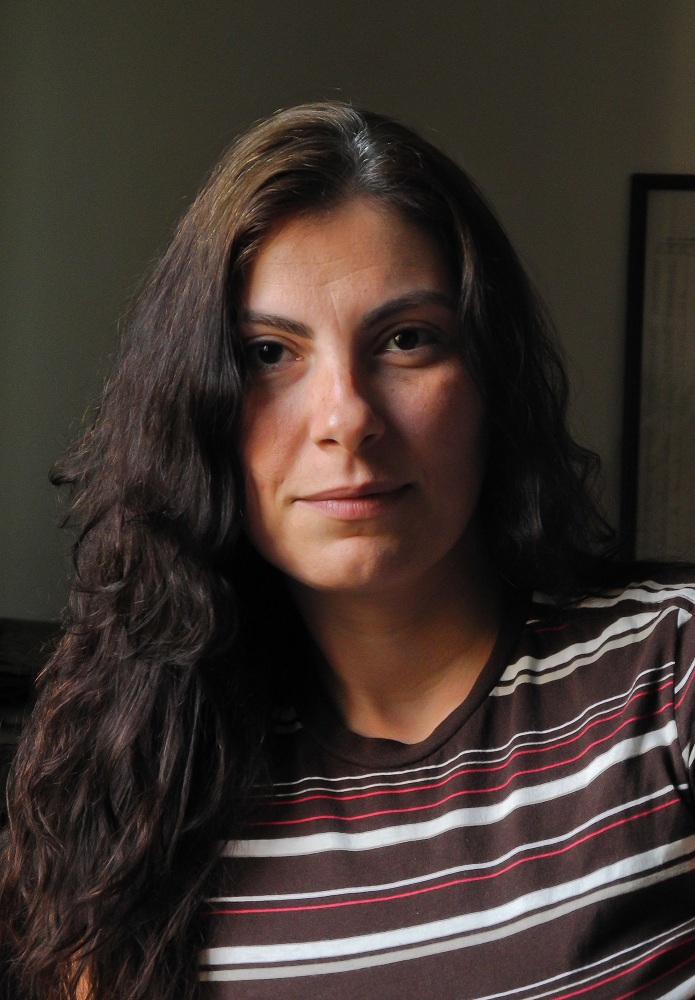
(Photo Handout from Eskenderella)
“Let your dogs out in the streets, and lock us up in your prison cells.”
Cheering and clapping, the crowd sings with Eskenderella band as they perform revolutionary song covers by El-Sheikh Imam at Al-Fan Midan (Art is a Square) cultural festival in Abdeen Square.
Because of its revolutionary tone, Al-Fan Midan, taking place in several cities on the first Saturday of every month, has strained against tightening government censorship over the past year. Its organisers were arrested in April, accused of violating the Protest Law, and, at one point, the festival was shut down for several months. Despite it all, the festival secured ongoing support from the Ministry of Culture this month in the form of a monthly EGP30,000 grant.
Al-Fan Midan, born after the 2011 Egyptian revolution, is a collaboration of 85 independent cultural organisations, including Al Mawred Al-Thaqafy (Cultural Resource) and Association for Freedom of Thought and Expression. In an attempt to give the public “the right to practice all types of art in the streets freely, without any ban from the state”, the group hosts free cultural events.
Since its launch, the festival, which aims to bring people from different backgrounds and age groups, has struggled to make ends meet with private donations and support from independent cultural organisations. The organisers officially requested “stable funding” from the Ministry of Culture in 2011, but only received financing for a few months under former Culture Minister Emad Abu Ghazi. He resigned after nine months objecting to the Supreme Council of Armed Forces’ [SCAF] way of dealing with protestors.
As the festival “attracts a wide audience and achieves benefit to the public,” it is qualified for ministry support, said Marwa Helmy, a festival organiser.
“The independent sector deserves to get a part of the ministry’s budget,” Helmy said, “It’s our right as a part of the civil society.”
Despite taking a government grant, Helmy said the organisers will never allow the state to change the content.
“We made it clear that the festival will remain independent,” Helmy said, “The ministry of culture will be listed among the supporters not as a sponsor.”
The festival’s previous experience with receiving the ministry’s support has assured the organisers that Al-Fan Midan will stay independent. Under Abu Ghazi, Al-Fan Midan showed ‘Askar Kazeboon’ (The Military are Liars) and ‘Ikhwan Kazeboon’ (The Brotherhood are Liars) without any interference from the ministry, she said. The Kazeboon shows were slideshows of photos and videos screened in squares, showing the regime’s violence against protestors during the rule of SCAF and the Muslim brotherhood.
The festival organisers’ deal with the ministry to secure its “basic minimum needs”, including submitting an annual request for permission to hold the festival in Abdeen Square. They also look into facilitating issuing permissions for its events in other cities, along with the monthly grant.
Al-Fan Midan has survived several “restriction attempts” and “legal obstacles, including the protest law”. It has also faced “the revival of practices that reduce the margin of freedom,” said a statement issued by the organisers last May after one of the events was raided.
The organisers are required to apply for a permission to hold the festival in the streets every month. Many times, they faced hardships getting their requests processed especially outside Cairo, Helmy said. Some cities were denied permission, others went through long processes every month.
In April 2014, “Al-Fan Midan” in Alexandria was dispersed by police forces. The organisers and a sound technician were also arrested after accusing them of “not having permission to organise the event and violating the Protest Law”. The festival was put on hold for two months in 2013 for “security reasons,” after the eruption of clashes between protestors against the former President Mohamed Morsi and his supporters. Later, clashes also occurred between protestors and police forces during the commemoration of the revolution’s anniversary.



